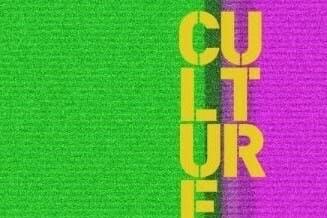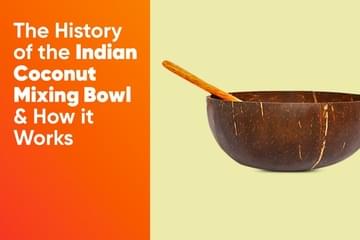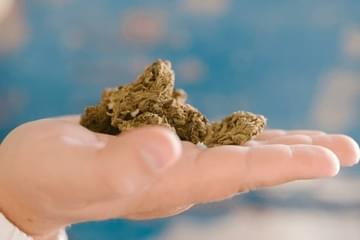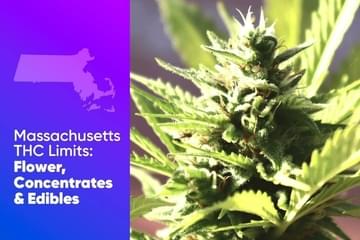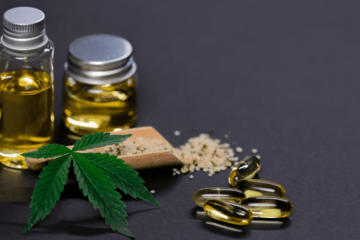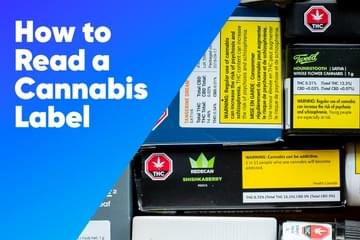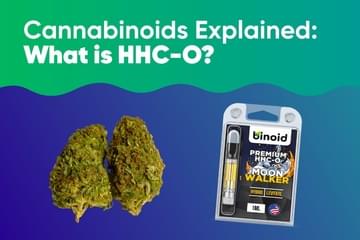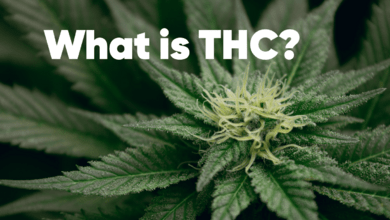
What is THC?
Published on 10/16/19
Updated Jun 7, 2022
THC, otherwise known as tetrahydrocannabinol for those who aren't into acronyms - is one of the many chemical compounds known as 'cannabinoids' that scientists have isolated in cannabis. It's no secret that THC is the most well-known and studied cannabinoid due primarily to its status as one of the more powerful parts of the plant in terms of medicinal benefits and psychoactive effects. When cannabis is consumed, the THC in weed gets the user high. THC is one of the oldest hallucinogenic drugs known to man. But what exactly is it, and how does it work?
We did the research, digging deep into what cannabinoids like THC are, what they do for us, and how we can use them to our advantage, both recreationally and medically. So whether the limits of your cannabis knowledge start and end with the THC acronym or you're a seasoned cannabis lover, we're here to give you the low-down on anything and everything THC-related.
What Are Cannabinoids?

Before we dig too deeply into what exactly THC is, how it works, and how best to use it, we think it's worth doing to start by defining some terms. First, let's start with a basic breakdown of cannabinoids.
Although there are different versions of cannabinoids, the molecules created by plants are known as 'phytocannabinoids.' These compounds manifest in the natural world as essential oils within the trichomes of many plants. They are sometimes involved in forming aromas, vitamins, steroids, and pigments. The perfume industry uses these compounds for scenting enhancements, and the food and pharmaceutical industries use cannabinoids to improve flavor and odor.
Cannabinoids found in cannabis interact directly with the peripheral and central nervous system via cannabinoid receptors in the complex cell-signaling system known as the endocannabinoid system. Even if you don't use cannabis, the endocannabinoid system is constantly in action and plays a critical role in regulating overall health and the mitigation of disease.
It also assists with the regulation of the body's physiological function and other physical signals such as:
- Pain Perception
- Metabolism
- Appetite
- Energy
- Sleep
- Mood
- Sex Drive
- Reproduction and Fertility
When cannabis products, whether it's THC-rich cannabis flower, an edible, or some type of hyper-potent cannabis concentrate, are consumed, cannabinoids enter the bloodstream and circulate throughout the body and the brain. Scientists have detected key receptors throughout the body that the cannabinoids link with and activate particular neurotransmitters that subsequently produce changes across the entire neurological system and link with those receptors. CB1 and CB2 receptors are the two types of receptors that communicate with the body's neurotransmitters.
When the receptors are activated, they influence how the systems and organs in the body operate and how we feel physically and emotionally, thus altering the body's typical operating system. In non-specialists' terms, this interaction between these cannabinoid compounds, our brains, and our endocannabinoid systems as a whole is what gives us the pain-killing, anxiety-reducing effects of medical cannabis and the mind-numbing euphoric high associated with THC.
What Does Tetrahydrocannabinol Do and How Does THC Get You High?

As noted above, THC is unique because it causes a psychoactive reaction in the brain, altering the way the mind works. That's what the feeling of being high is.
THC also alters the way the physical body feels since the brain and the body are symbiotic, intertwined, and interdependent. THC binds with CB1 receptors, which are found in great numbers in some brain areas. When you consume THC, it binds to the CB1 receptors, creating the intoxicating effects. It also binds with the CB2 receptors located on the cells of the immune system; one of the reasons medical marijuana can be so beneficial and continues to be researched and advanced today.
THC's anti-emetic properties inhibit vomiting and are particularly useful in treating cancer patients receiving chemotherapy. THC also increases appetite and reduces nausea to be used in the treatment of anorexia and other eating disorders.
When THC links with CB1 receptors, it mimics the natural chemical produced in the brain called anandamide and changes the standard process of how the brain communicates with the body and has behavioral and physical effects such as:
- Feelings of euphoria
- Lightheadedness
- Altered time perception
- Relaxation
- Lack of concentration
- Changes in mood
- Heightened sensory experiences of taste, sound, and color
- Increased appetite
These sensations or a combination of these physiological changes results in what we call the "high." The endocannabinoid system typically regulates these aspects of bodily function, but those functions are altered, enhanced, and changed when we introduce THC. It is also why the "high" can vary significantly from one individual to another, taking factors like age, weight, sex, tolerance, and other medications you might be on.
With so many different factors at play, there are myriad opportunities for different reactions or outcomes to manifest themselves in different ways from person to person.
Are There Any Possible Negative Effects to Consuming THC?

Despite many users in the industry - including physicians - being excited and optimistic about the benefits of THC use, scientists have outlined some potential adverse effects of THC consumption, especially when it comes to long-term, heavy use.
There is some evidence that heavy use at a young age can contribute to psychiatric disorders. People who regularly smoke cannabis may be at higher risk for respiratory issues such as chronic bronchitis. There is also evidence that THC can impair motor coordination and cause depression and suicidal thinking.
Evidence also points to the potential for a reduction in short-term memory capabilities. Still, this effect can benefit those suffering from traumatic memories or coping with PTSD.
It's worth considering, however, that all of these risks and possible setbacks only apply when it comes to long-term, chronic use. Research for the therapeutic, controlled medical use of THC is still minimal, but what we've gotten back so far shows real potential for effectively treating pain and anxiety conditions.
Like any other medicine or chemical compound, you should always consult with a certified medical professional, like a general practitioner, mental health professional, or certified cannabis doctor, before making drastic changes in health care.
The Bottom Line
THC is a powerful tool that you can use to your advantage. Whether you're looking to ease the aches and pains associated with a medical ailment or just feel a little better when it comes to muscle pain after a rigorous workout, a little bit of THC could do the trick. If you're looking for an extra kick from the entourage effect, feel free to add a little bit of CBD!
Today's legal cannabis industry is as advanced and well-developed as it's ever been, giving consumers a wealth of options for taking it. You could smoke or vape standard cannabis flower, eat it in the form of edibles, capsules, and THC-infused beverages, or quickly and accurately dose yourself with a tincture. No matter how you're taking the THC-rich product, you'll likely get the benefits from it if you use it as directed!
What are your experiences with THC? Do you prefer marijuana with high levels of THC or are you more inclined to enjoy cannabis with lower levels of tetrahydrocannabinol? If you have been using cannabis for a long time, have you noticed any side effects or changes to your system? Take a second to let us know your experience with and enjoyment of THC in the comments section below.








